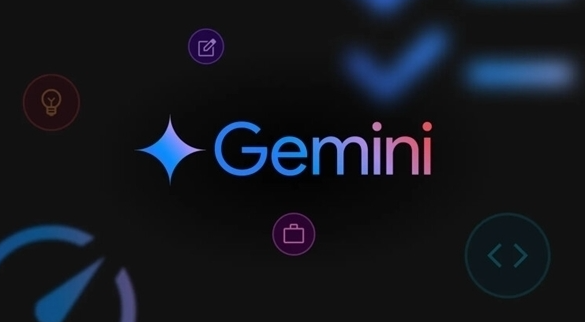Google Gemini's Energy Consumption Revealed! A Single Response Uses Only One Second of Microwave Power, the Green AI Revolution Quietly Begins
-
As artificial intelligence technology sweeps the globe at an astonishing pace, a major question about energy consumption has quietly emerged in the industry. Just how much electricity do AI models consume? What environmental impact do these intelligent systems have? Google's latest technical report has finally provided surprising answers to these questions while also charting a sustainable path forward for the entire AI industry.
This highly anticipated report is the first to disclose detailed data on the actual energy consumption of Google's newest AI model, Gemini, when processing user queries. The numbers reveal that Gemini consumes an average of just 0.24 watt-hours per text response—a seemingly technical figure that hides a vivid comparison. What exactly does 0.24 watt-hours mean? It happens to be equivalent to the electricity consumed by a household microwave running for just one second. This analogy allows ordinary users to intuitively understand just how minimal the energy cost of conversing with AI really is.
Alongside this query process, Gemini also generates approximately 0.03 grams of CO2 equivalent emissions. While this may seem negligible for a single interaction, the cumulative environmental impact becomes significant when hundreds of millions of users engage with AI services daily. By proactively disclosing this data, Google not only demonstrates its commitment to environmental responsibility but also sets a new benchmark for transparency and sustainability in the AI industry.

In its pursuit of energy efficiency, Google hasn't stopped at data disclosure—it has also introduced more energy-saving solutions. The newly released Gemma3270M lightweight model perfectly embodies this philosophy. With 270 million parameters, this streamlined model is deeply optimized for edge device applications, maintaining excellent instruction-following and text structuring capabilities while achieving impressively low energy consumption.
The Gemma3 product line is thoughtfully designed to meet diverse user needs across different scenarios. Ranging from the ultra-lightweight 270M version to the powerful 27B version, this family of models—spanning 270M, 1B, 4B, 12B, and 27B—provides developers with comprehensive options from mobile devices to cloud servers. Each version strikes the optimal balance between performance and energy consumption, ensuring users can select the most suitable technical solution for their specific needs.
The energy efficiency of Gemma3270M is particularly remarkable. In the Q4_0 quantized format configuration, this model requires only 240MB of RAM, making it capable of running smoothly on various resource-constrained devices. Even more impressive is that 25 consecutive rounds of dialogue consume just 0.75% of a device's total battery capacity. This ultra-low energy consumption makes Gemma3270M ideal for high-frequency usage scenarios, especially mobile applications that require frequent AI interactions but are sensitive to battery life.
Privacy protection is another standout feature of Gemma3270M. Since the model runs directly on local devices, users' sensitive information doesn't need to be uploaded to cloud servers for processing. This provides an ideal solution for applications involving personal privacy, such as sentiment analysis and entity recognition. In an era where data privacy is increasingly valued, this on-device processing capability holds significant practical importance.
Alongside the new model, Google has thoughtfully prepared extensive technical support resources for the developer community. Detailed fine-tuning tutorials and full-model training guides based on the Hugging Face Transformers framework enable developers to easily customize these AI tools for various applications, including classification tasks, information extraction, and sentiment analysis. This open approach to technical sharing not only lowers the barrier to AI adoption but also accelerates innovation across the industry.
Google's initiative carries profound significance—it's not just a product launch but a pivotal moment in guiding the future direction of the AI industry. By proactively disclosing energy consumption data, Google sends a clear message to the entire sector: AI advancement should not come at the expense of the environment, and green AI will be a crucial trend in future technological development.
As global attention to climate change and environmental protection grows, AI companies face increasing pressure to address sustainability. Google's move sets a positive example for the industry, and it's likely that more tech companies will follow suit by disclosing their environmental impact data, collectively driving AI technology toward a greener, more sustainable future.
In this era of rapid AI evolution, the launch of Google Gemini and the Gemma3 series proves an important point: high performance and low energy consumption are not mutually exclusive. Through meticulous technical design and optimization, AI models can deliver exceptional service while maintaining minimal environmental impact. This achievement opens a bright path for the sustainable development of the entire AI industry.
